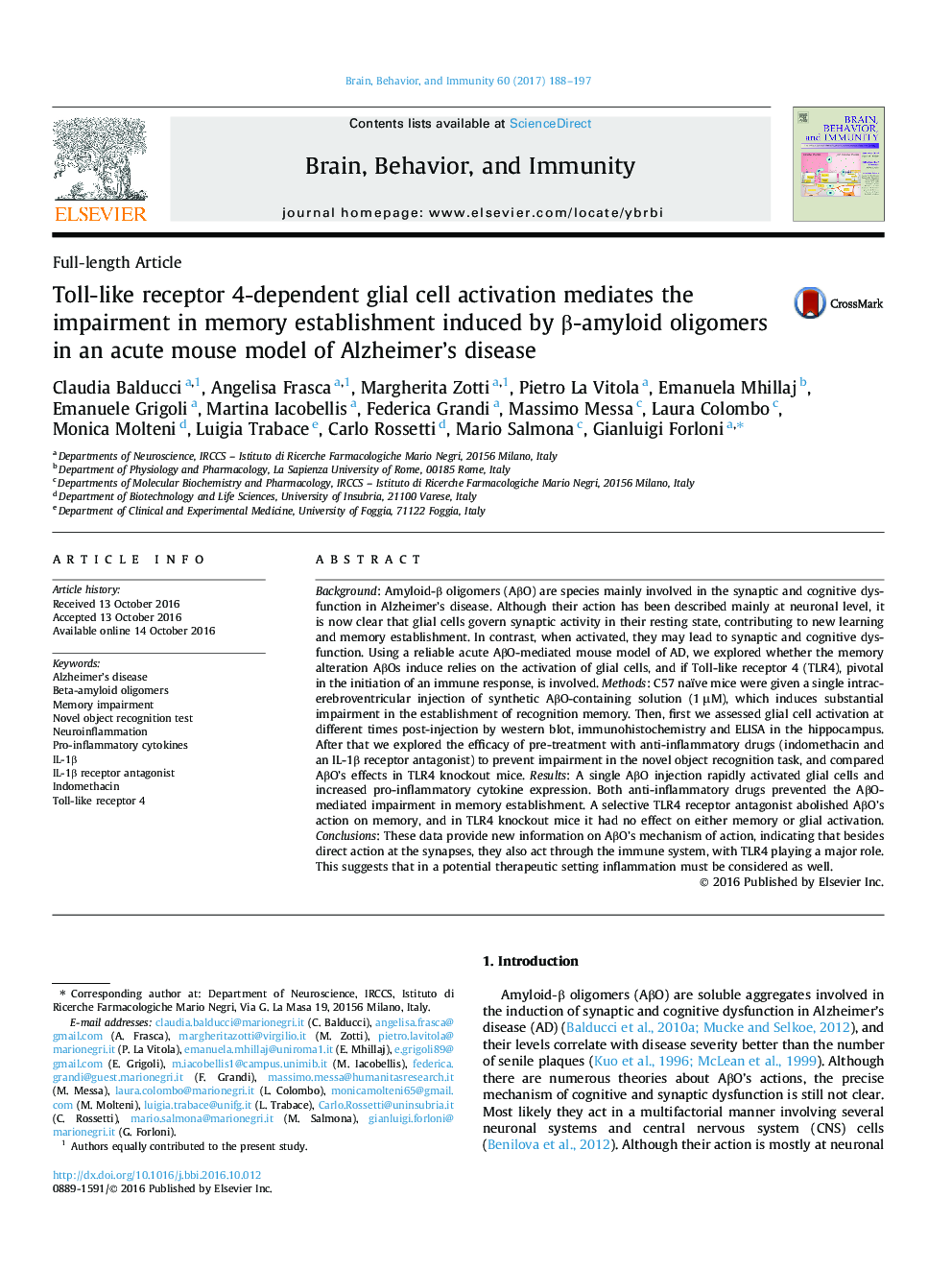| کد مقاله | کد نشریه | سال انتشار | مقاله انگلیسی | نسخه تمام متن |
|---|---|---|---|---|
| 5040748 | 1473907 | 2017 | 10 صفحه PDF | دانلود رایگان |

- An ICV injection of AβO impairing memory leads also to a rapid glial activation.
- Anti-inflammatory drugs prevent the AβO-mediated memory impairment.
- AβO-mediated effects are abolished by TLR4 antagonist or in TLR4â/â mice.
- Concluding, TLR4-mediated glial activation is involved in AβO-induced memory impairment.
Background: Amyloid-β oligomers (AβO) are species mainly involved in the synaptic and cognitive dysfunction in Alzheimer's disease. Although their action has been described mainly at neuronal level, it is now clear that glial cells govern synaptic activity in their resting state, contributing to new learning and memory establishment. In contrast, when activated, they may lead to synaptic and cognitive dysfunction. Using a reliable acute AβO-mediated mouse model of AD, we explored whether the memory alteration AβOs induce relies on the activation of glial cells, and if Toll-like receptor 4 (TLR4), pivotal in the initiation of an immune response, is involved. Methods: C57 naïve mice were given a single intracerebroventricular injection of synthetic AβO-containing solution (1 μM), which induces substantial impairment in the establishment of recognition memory. Then, first we assessed glial cell activation at different times post-injection by western blot, immunohistochemistry and ELISA in the hippocampus. After that we explored the efficacy of pre-treatment with anti-inflammatory drugs (indomethacin and an IL-1β receptor antagonist) to prevent impairment in the novel object recognition task, and compared AβO's effects in TLR4 knockout mice. Results: A single AβO injection rapidly activated glial cells and increased pro-inflammatory cytokine expression. Both anti-inflammatory drugs prevented the AβO-mediated impairment in memory establishment. A selective TLR4 receptor antagonist abolished AβO's action on memory, and in TLR4 knockout mice it had no effect on either memory or glial activation. Conclusions: These data provide new information on AβO's mechanism of action, indicating that besides direct action at the synapses, they also act through the immune system, with TLR4 playing a major role. This suggests that in a potential therapeutic setting inflammation must be considered as well.
Journal: Brain, Behavior, and Immunity - Volume 60, February 2017, Pages 188-197